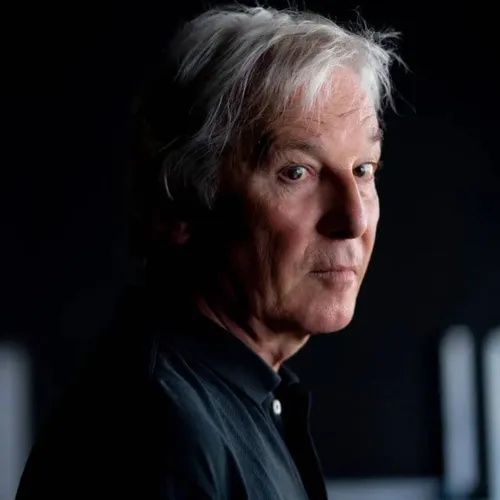
Robert HP Platz studied composition with Wolfgang Fortner in Freiburg Conservatory and conducting with Francis Travis. In 1973, he followed in Cologne training with Karlheinz Stockhausen.
In 1978-1979, he won a scholarship from the Heinrich Strobel Foundation Radio Südwestfunks allowing him to travel to the United States and Paris (IRCAM).
From 1983 to 2001 he directed the Ensemble Köln he founded. As a conductor, he was invited - among others - by the Ensemble Modern, Klangforum Wien and der Reihe, Deutsche Symphony Orchestra, the WDR Radio Orchestra, the Symphony Orchestra of the SWR Freiburg / Baden-Baden and Stuttgart ...
He has directed over three hundred creations throughout Europe, the US and Japan, in festivals such Musik der Zeit (WDR), Musica Strasbourg, the International Meetings of Contemporary Music Metz, Salzburg festival, ... He is the principal guest conductor of the l'ensemble Alternance to Paris and Musica d'Insieme in Milan.
In 1990, at the invitation of the Rockefeller Foundation, Robert HP Platz is in residence at the Villa Serbelloni and Japan two years later. His compositions are mainly dedicated to chamber music and the scene.
Since 1990, he taught composition at the School of Maastricht. In addition, there is a guest speaker in many countries. It notably gives master classes at Darmstadt in 1986, 1996 and 2002, as well as Japan, Poland, the Netherlands and the United States. He is artistic director of the Fall Festival Schreyahn since 2000 and member of the research and Wallonia Musical Training Centre (CRFMW) of Liège since 2005.
For long years, I kept away from the oboe – I was interested in smooth transitions between orchestral timbres, and a quasi inaudible entrance cannot be asked from a double reed instrument like the oboe. Yet I was always impressed by the art of Heinz Holliger, and so I wrote this piece for him: the specific colour of his instrument now leaves it’s imprint on the sound of the entire orchestra, all the way to a dominance of sharp cuts over smooth transitions, imbedding the solo instrument in the orchestral sound if it is not set against the orchestra in rather chambermusic-like gestures.
An English Horn sounding from the distance seems to evoke romantic topoi, but is much rather the cause for a polyphony enveloping the performance space This dialogue between English Horn and Oboe, together with a specifically written encore for performances of Blau See, I have put into a score to be performed separately: See.
An encore of „my“ soloist, taken as a counterpoint from a composer of the past, I wanted to prevent – after all, I am bringing polyphony through this counterpoint directly into my piece.
And I do treasure this polyphony, both musically and as my view of the world. Polyphony means: to respect the other in his being different, to respect his dignity. Only the disparity of parts/voices makes a living total, and only in the reflection of the other we do recognize ourselves.
Robert HP PLATZ